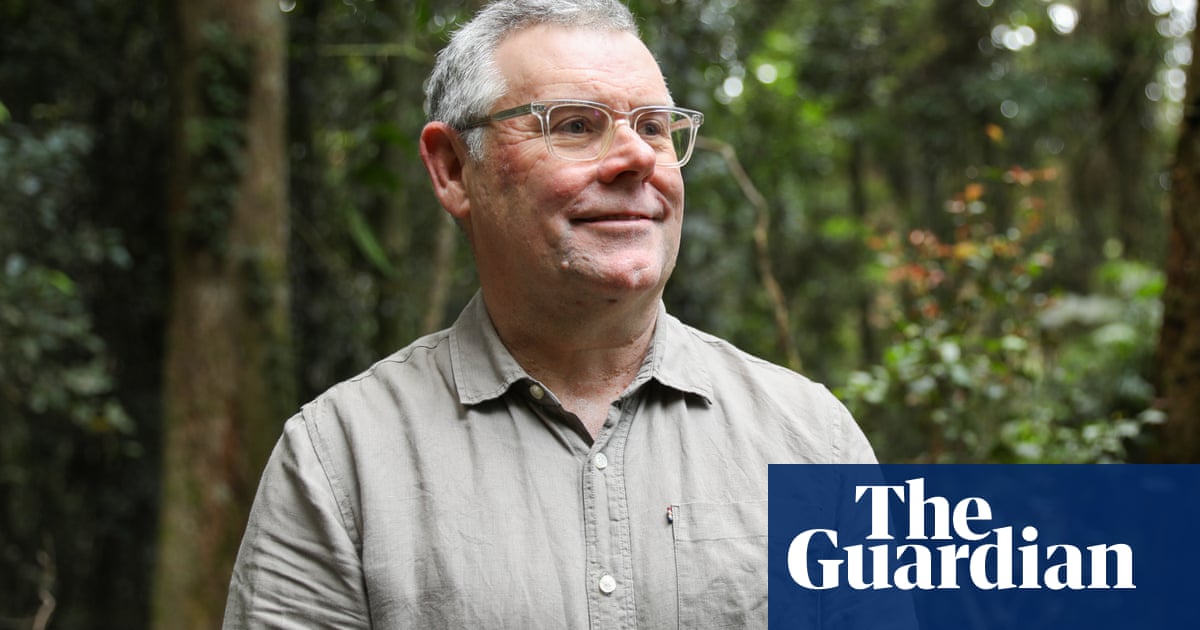Legislating a federal environment protection agency is a “very high and immediate” priority for the re-elected Labor government, new minister Murray Watt has said, signalling he wants nature laws passed quickly to avoid another drawn-out political fight.
In an early statement of intent, Watt will next week travel to Western Australia where he intends to meet face to face with the premier, Roger Cook, and mining industry leaders whose lobbying helped sink the proposed EPA in the previous term.
In his first interview with Guardian Australia in the role, the Queensland senator said he was also considering dropping the“nature positive”title for Labor’s wider overhaul of the Environmental Protection and Biodiversity Conservation Act (Epbc).
“I am considering the type of language we use to describe these reforms,” Watt said.
“I think the more we can explain these concepts in terms that Australians can understand and buy into, I think that does improve our chances of building public support for them.”
The former industrial relations minister was last week appointed to replaceTanya Plibersek, whose three years in the environment portfolio were defined by a failure to win support for promised nature protection laws.
Watt’s first priority is a decision onWoodside’s applicationto extend its North-West shelf gas project to 2070 – due on 31 May – before he turns his attention to fixing the EBPC Act.
The Labor frontbencher said it was “certainly his intention” to make a ruling before the deadline rather than seek another extension.
Plibersek was on the cusp of adeal with the Greensin November to establish the EPA before it wasscuttled by the prime minister, Anthony Albanese, amid pressure from Cook and WA miners.
Albanese stepped in again in February, shelving the legislation indefinitely to the anger of environmental groups andgrassroots Labor members.
The prime minister recommitted during the election campaign to establish a federal nature watchdog but not in the some form to the one shunted weeks earlier.
With the government committed to fresh rounds of talks with industry and environment groups, Watt would not be drawn on the possible design of EPA 2.0, including the option of an agency that enforces nature laws but does not approve projects.
Albaneseoffered up that model– which sections of industry backed – in a futile attempt to win the Coalition’s support in the previous term.
The EPA was just one part of the wider “nature positive” plan, which also included a suite of national environmental standards in line with recommendations inGraeme Samuel’s review of the EPBC Act.
Plibersek put the standards on the backburner, with no timeframe for their implementation, after splitting up the package inApril last year.
Watt said he was open to changing course, pursing one large set of laws – including an EPA – rather than multiple tranches.
“It was absolutely understandable that we progressed the reforms in a staged manner prior to the election,” he said. “I’ve got a genuinely open mind about that (one broader bill). There will be pros and cons about that, and that’s one of the things that I want to consider.”
Watt has not formed a view about national environmental standards but said it was “his intention to progress these reforms in the spirit of Graeme Samuel’s recommendations”.
The new minister wouldn’t set a deadline for the legislation but has signalled Labor wants to resolve the legislation early in the term, outside the heat of the pre-election period.
“This is a very high and immediate priority for the government,” Watt said.
“It’s why on day one on the job, I was on the phone to all of the key stakeholders talking about this. It’s why I’m headed to WA next week … to get those conversations started.
“I do think that the immediate period after an election is an ideal time to settle complicated, contentious reforms and I want to use that opportunity to the best effect.”
The minister insisted he wasn’t “picking sides” in the debate, having held phone calls with environment groups, such as Greenpeace and Australian Conservation Foundation, and industry groups such as the Minerals Council of Australia.
Watt was open to working with either the opposition or the Greens to strengthen environment laws, with both parties under new leadership after the election.
The new Greens leader,Larissa Waters, urged the government to be “bold”as she reaffirmed the party’s position on banning native forrest logging and blocking new coalmines and gas fields.
Labor has ruled out a ban on native forrest logging but has committed to applying national environmental standards to regional forestry agreements.
The government also has no plans to add a “climate trigger” to environmental laws, adamant the safeguard mechanism is an appropriate mechanism to regulate emissions from fossil fuel projects.
Watt welcomed Waters’ commitment to a “constructive” approach to dealing with Labor.
“This [environment protection reform] would be an ideal opportunity for her to show that she’s serious about that,” he said.
